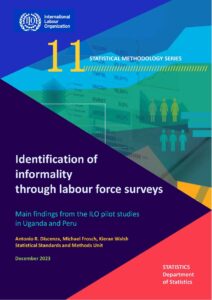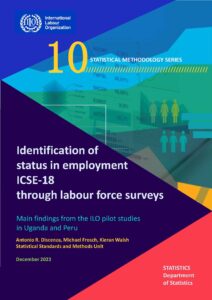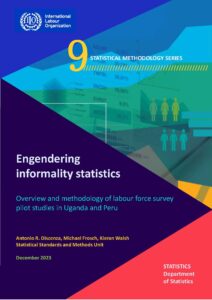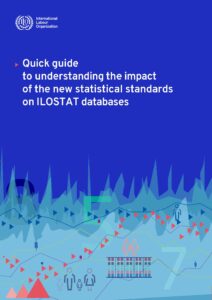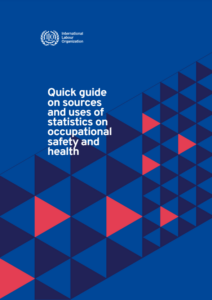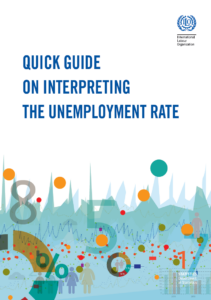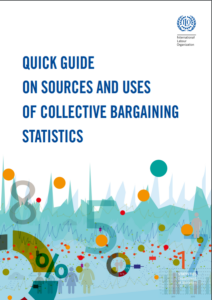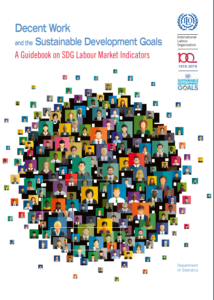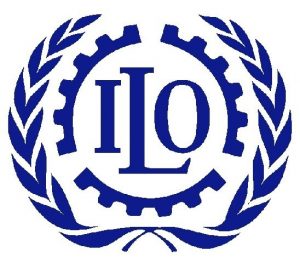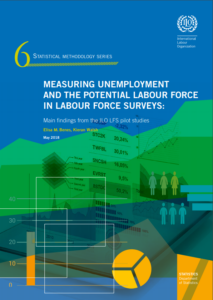Table of Contents
International labour statistics standards play a pivotal role in the measurement of work and the labour force, providing a solid common framework to understand the world of work and enable governments to shape responsive policies. Indeed, in the last decade standards have evolved to keep up with changes in the world of work. New standards have been adopted to ensure the sound measurement of both paid and unpaid work, fast-evolving work relationships, and the informal economy so prevalent around the world. However, data gaps remain. Standards have to be applied in surveys and other data sources to be effective.
In this page, you can find all the relevant information on statistical labour standards, methods, and guidance to implement them effectively including practical tools for survey design, interpretation, and publication of end results.
Standards
The International Conference of Labour Statisticians (ICLS), hosted by the ILO every 5 years, is the main international standard-setting process for labour statistics. Access below key information on the ICLS, standards adopted by the ICLS and other ICLS documents, and core concepts and definitions used in ILOSTAT.
International Conference of Labour Statisticians (ICLS)
The ICLS meets every 5 years to establish international standards on labour statistics. The latest (21st) ICLS was held in October 2023.

ICLS documents
Find resolutions, guidelines, meeting room documents and reports related to the International Conference of Labour Statisticians (ICLS).
Technical working groups
Technical Working Groups (TWGs) support the development and implementation of international statistical standards. This page presents the active TWGs and their main work.

Forms of work: An overview of the new statistical standards
An introduction to the conceptual frameworks for forms of work and labour force statistics, including labour underutilization.

Concepts and definitions
Database descriptions, statistical standards (resolutions and guidelines), and guides and manuals – all the metadata to better understand the labour statistics presented on ILOSTAT.
Implementation of new standards
In order to determine that the new labour statistics standards adopted by the 19th, 20th and 21st ICLS have been implemented, the data collection activity must meet certain requirements. Access below an overview of the key requirements for household surveys and related guidance.
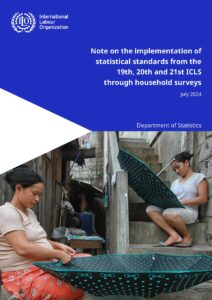
Note on the implementation of statistical standards from the 19th, 20th and 21st ICLS through household surveys
This note provides an overview of the requirements to apply the latest statistical standards through household surveys.
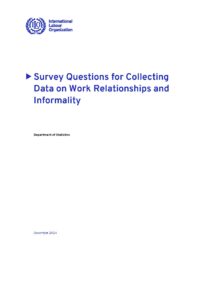
Survey Questions for Collecting Data on Work Relationships and Informality
This document provides recommended survey questions for collecting data on work relationships (ICSE-18), informal employment, and the classification of economic units across three sectors: informal, formal, and household own-use production and community sector. (HOC). It incorporates the 20th ICLS resolution on work relationships (ICSE-18) and the 21st ICLS resolution on statistics for the informal economy.
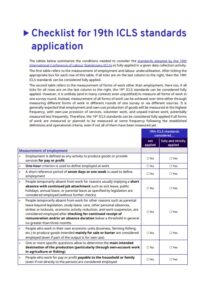
Checklist for 19th ICLS standards application
This checklist provides a simple way of verifying that all conditions required to consider the standards adopted by the 19th International Conference of Labour Statisticians (ICLS) as fully applied in a given data collection activity are met.
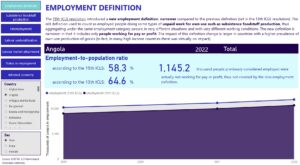
Visualization tool on the impact of latest statistical standards
This interactive visualization tool shows the impact of the latest statistical standards across a range of work-related topics, highlighting the increased analytical value of statistics.
Classifications
The ILO is responsible for the development and maintenance of the following classifications. See concepts and definitions for additional classifications.

International Standard Classification of Occupations (ISCO)
ISCO is a statistical framework that organizes jobs into a clearly defined set of groups according to the tasks and duties undertaken in the job.
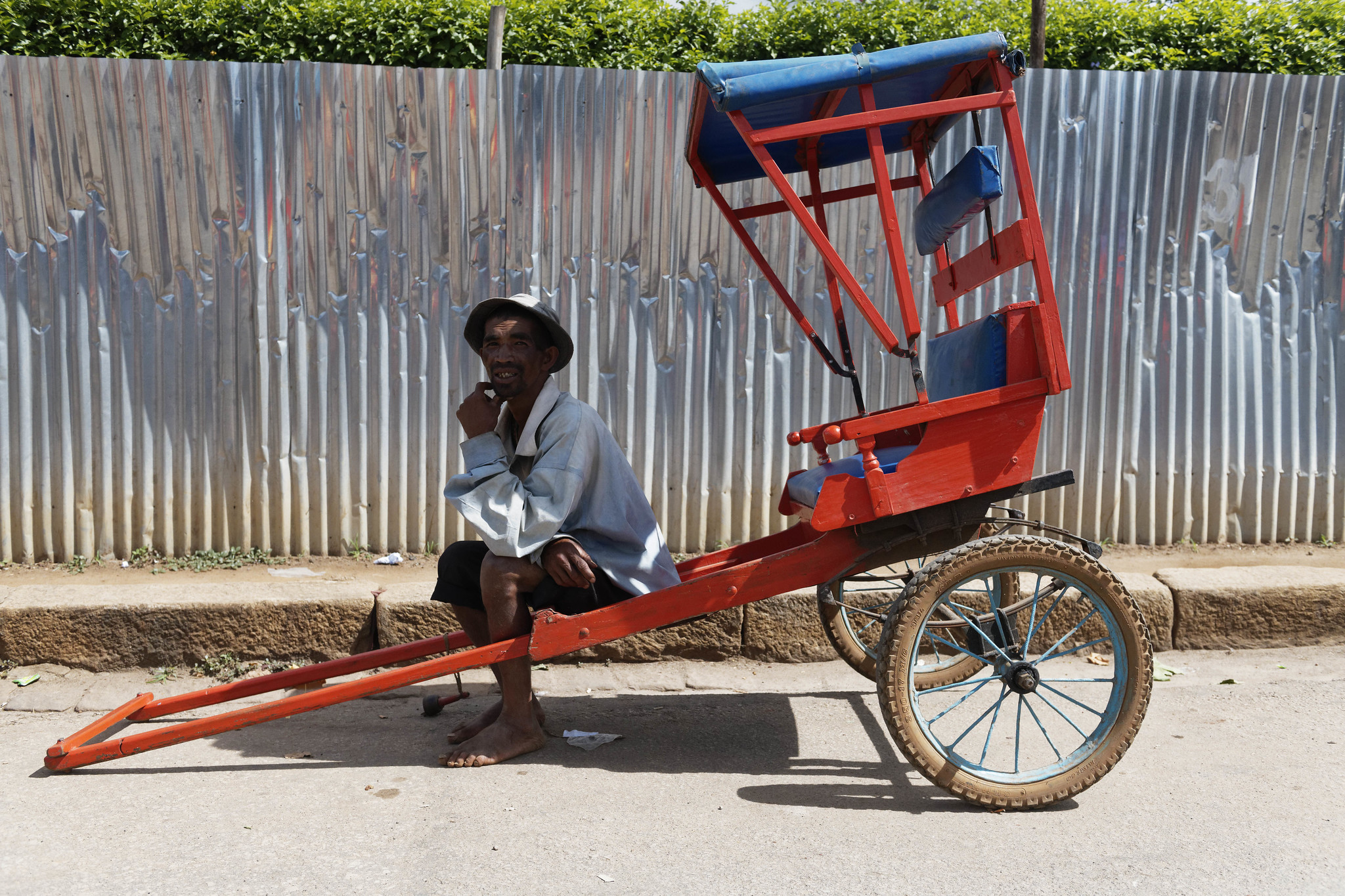
International Classifications of Status in Employment and Status at Work (ICSE and ICSaW)
See the latest international classifications for all forms of work and for employment according to type of authority and economic risk.
Methods and guidance
The ILO equips statisticians with practical tools, evidence-based methodologies and technical guidance to implement new standards and make the most of the data.
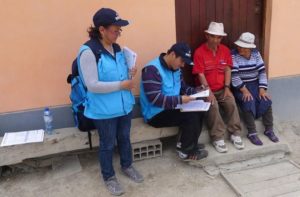
Labour force survey (LFS) questionnaire toolkit
Online resources for data producers to build or improve their labour force survey, such as PAPI and CAPI model questionnaires.

Communication of statistics
Resources for data producers to ensure an effective communication of statistics and methodologies, to make the most of the data produced and avoid misinterpretation, especially of breaks in series following the implementation of new standards in the LFS.
Measuring unpaid domestic and care work
Discover a practical tool for measuring unpaid domestic and care work and find out how we can assist you in making time-use data collection and analysis faster, easier, and more accurate.

Population Census resources
Online resources for data producers to improve their population census to be in line with the latest international statistical standards for labour.

Administrative data sources for labour statistics
Online resources for data producers and users to make the most of administrative data sources for labour statistics, in the absence of or in complementarity with Labour Force Surveys.

COVID-19
This page discusses the impact of the pandemic on labour markets and the collection of labour statistics. It features guidance for data producers.
Research and development
The ILO has an active programme of methodological research to identify and promote good practices in the collection and reporting of work statistics to support standards setting and implementation.
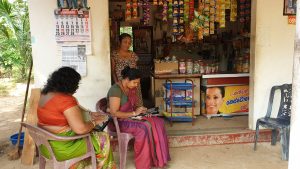
LFS research and development
Learn more about the ILO’s programme of methodological research to identify and promote good practices in the collection and reporting of labour statistics.
Key and emerging topics
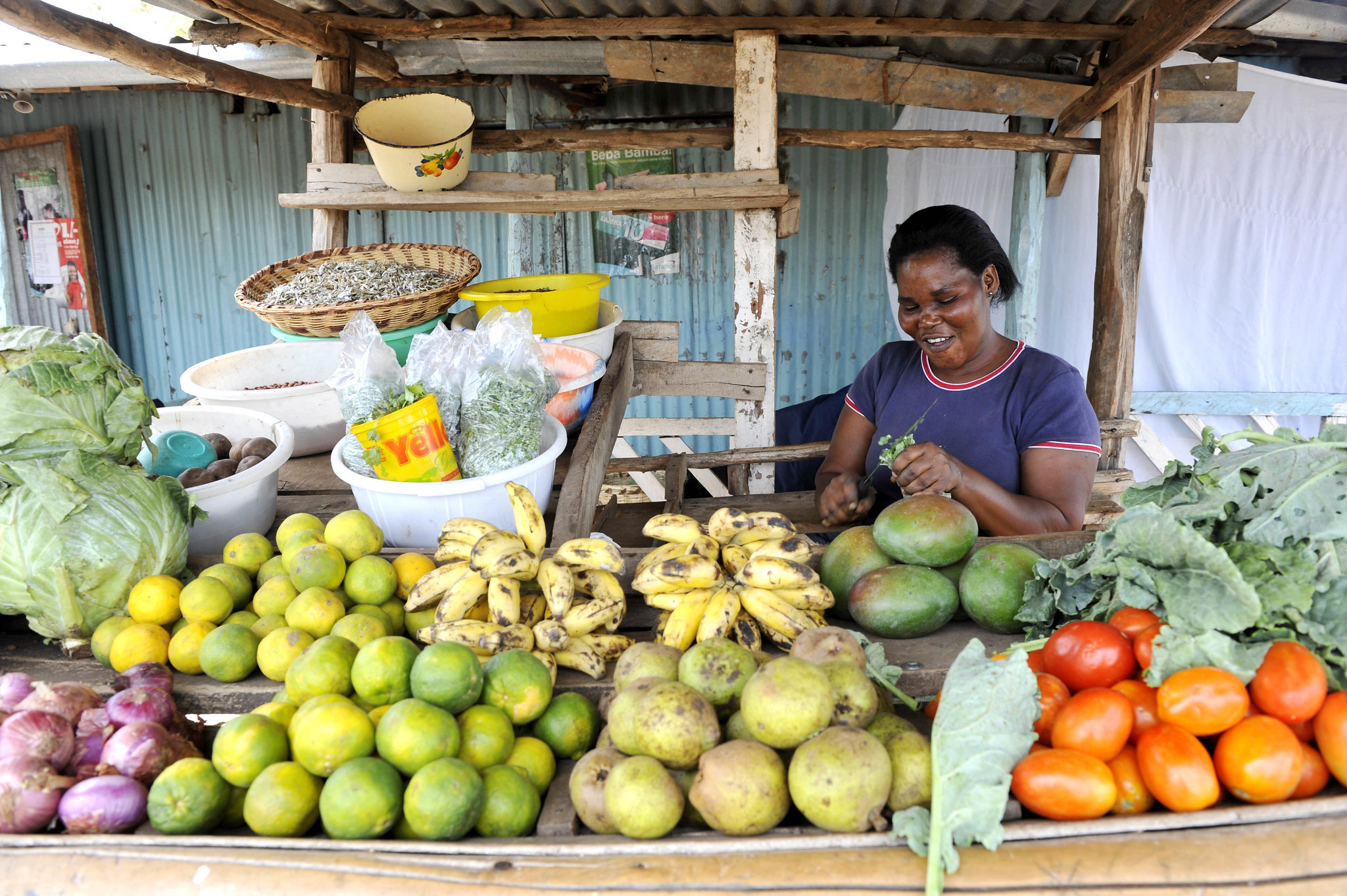
Statistics on the informal economy
This topic page on the informal economy provides access to statistical information including data, methods, publications and more.
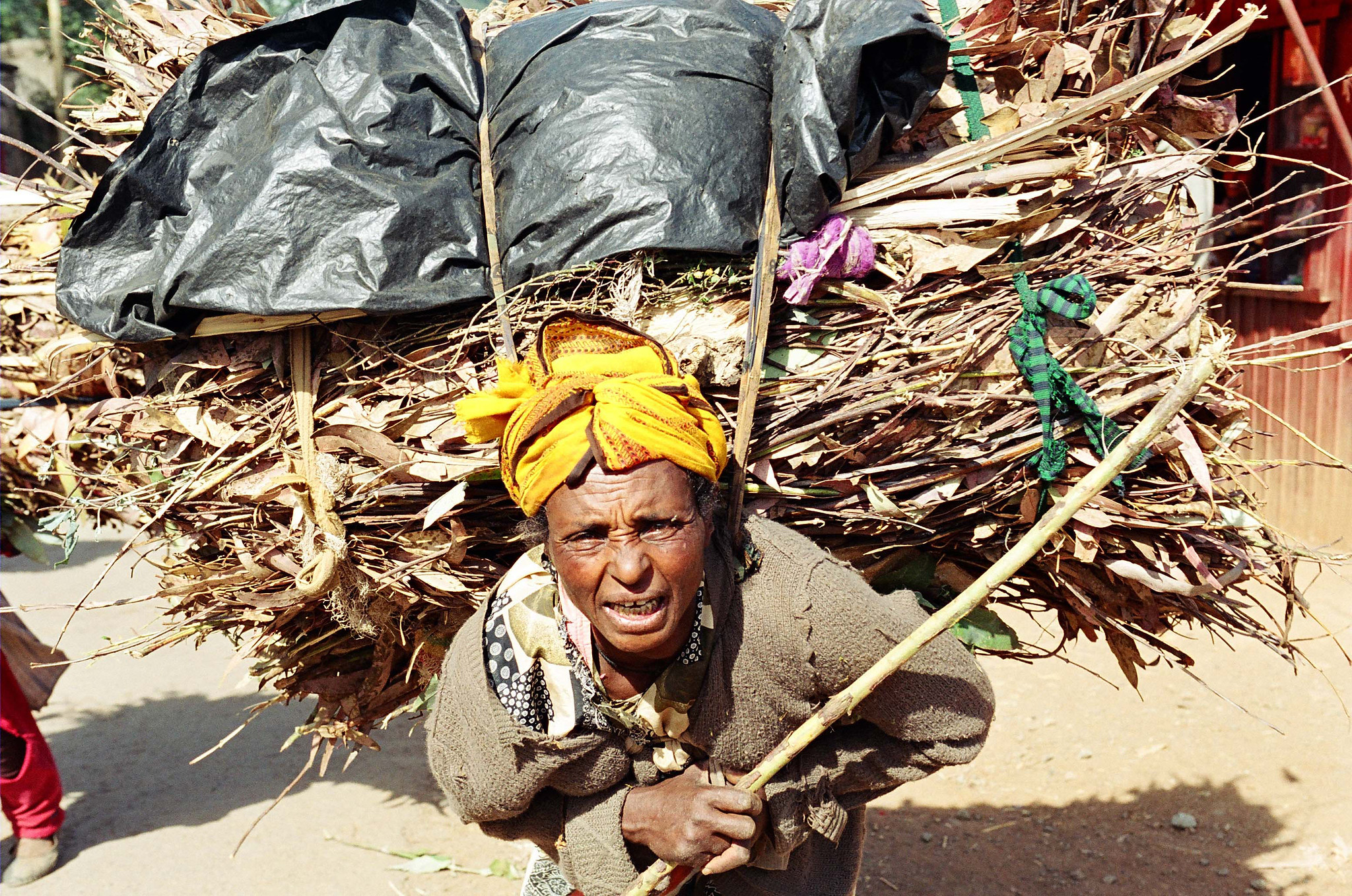
Statistics on unpaid work
This topic page on unpaid work provides access to statistical information including data, methods, publications and more.

Statistics on volunteer work
This topic page on unpaid work provides access to statistical information including data, methods, publications and more.

Statistics on migrant workers
This topic page on labour migration, including stocks and flows, provides access to statistical information including data, methods, and publications.
Publications
Access below some key publications related to statistical labour standards and methods. For analytical publications featuring ILOSTAT data click here.
